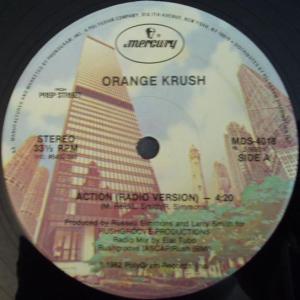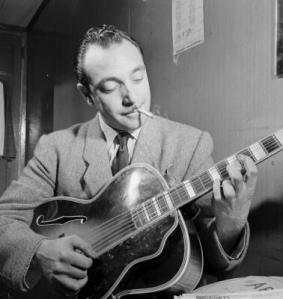There is a line from The Soprano’s that Tony uses to end a long Paulie Walnuts rant about the good old days. He says, “it’s just that ‘remember when’ is the lowest form of conversation.” We here at Bums Logic might have a lean towards a back-in-the-day mentality–especially when it comes to music–so we understand that some readers might not always want to hear about “how much better it was back then” or “you gotta listen to it on vinyl vs. mp3…and CDs just suck!”
Living through the 80s, 90s, and 00s, we have been lucky enough to not only witness but take part in the so-called digital revolution. We have seen a changing of the guard. Yes, we have reached an age where we find ourselves muttering, “remember when…” or what we here a Bums Logic like to refer to as a “get off my lawn” moment.
Just how different are things now for playing in a band? Let’s look at a few changes that have taken place over the past 15-20 years:
Performing
Back In The Day
You started a band with your friends and classmates. You hoped that one of you had either a basement or garage and parents or roommates willing to let you practice in their homes. The band rehearsed as often as they could and tried to learn and write as many songs as possible. If you were lucky, someone had a tape recorder they could put in the middle of the room so you could record yourself a “demo tape.” You played as many local gigs as you could and got as many of your friends and classmates to show up as possible.
Today
You start a band with your Facebook friends or connect to other musicians through Craigslist. You each get an iPad and download an instrument app. Sign in to Skype and have a virtual jam with your drummer in Australia, keyboard player in Japan, bassist in Italy, guitar player in Sweden, and singer from San Francisco. Each musician never has to leave the comforts of their own home (and you can use ear buds!). Record the entire process in audio and video (easily done with your laptops and/or smartphones). You write as many clever songs as you can this way and have your friends follow you with their iCameras and film you performing in various public locations in your locale. You become a huge YouTube sensation and become the first band to ever appear on Letterman via Skype.

"Well son, that little hole in the middle is where the LP goes on the player. Then you put the needle on the edge of the record and listen all the way through."
Recording
Back In The Day
Your band played gigs so you could save up to make a real recording at a real local studio. Could be anywhere from $200 to $10,000 depending upon what kind of recording you could afford. The studio was all analog. Recordings were done on tape and/or DAT. Making overdubs was easy but editing, looping, etc. could sometimes be painstakingly slow (and often done by hand). You put your recording on to a cassette tape–later CDs–and mailed it off to a production company to put a package together for you to sell at shows and local record stores. You hoped to hell that some sort of record company would take interest.
Today
You turn on your laptop, open up an audio software program (such as Garageband), plug in a microphone or two into an interface connected to your computer via firewire cable, hit record, and play your virtual (sometimes real) instrument into said software. 328 loops and edits later you will have your song. You can now mix, master, and burn it in the software. Take the mixdowns and upload them to iTunes for the entire world to hear. Entire process costs (assuming you already own the computer, software, speakers, and mics) under $10 per song. You never have to leave your living room.
Promoting
Back In The Day
Whether your band had secured a gig or ten it was up to you to promote the hell out of it and get as many people to show up as you could. If you had a more artistic member of the band then they were usually relegated to flyer duty. Flyers would be created by the cutting and pasting of images and typed out words, then placed on a master sheet of paper, taped down, and brought to a printing store for copying. The band would then go around town and hang up the flyers, hoping strangers would be so enticed by their artwork that they would come out and see their band play (it also helped if you had a cool name). You called everyone you knew to let them know you were playing. Hopefully the club placed print ads in their local papers and hung up the flyers you sent them via the USPS. Have fans at your shows sign up for your mailing list so that in the future you can send them “mailers” announcing your upcoming gigs (also via the USPS). Maybe a local music writer would do some press on you in their print newspaper or magazine.
Today
Open up Photoshop, search Google for a cool image, copy it, import it back into Photoshop, put the gig info in text around image using one of your 856 system fonts, save it as a jpg/gif/tiff/png/etc. and print it on your desktop. Upload the flyer to your Facebook page and post a message to your 1432 friends that you have a gig. Tweet the gig info to all of your followers. If you happen to actually see any of your friends in person you can always text them from across the room to let them know about the show. The text can even have a copy of the flyer and include audio and video clips of the band. Email the club your digital press kit and flyer so they can post the info on their websites, Facebook, and Twitter. Shoot an email around to your “Gmail Blast” list, a group of people you know who might be interested in your band playing. You collect those names by purchasing a list from a major company that tracks your online activity and purchase history, connecting you with potentially interested parties who might have downloaded songs from a band that has a similar style to yours.
But seriously, how lucky are we that we have access to millions, shit, billions, of songs in an instant? How lucky are musicians now to be able to sit in their own rooms and record real instruments into their laptops for dirt cheap? How great is it that the major labels have failed in part because of this?
Advancements in digital recording have enabled millions of potentially good musicians to become very successful ones. It’s cheap, it’s affordable, it’s simple, and it can easily help ignite a creative spark. There are bands like Radiohead and The Flaming Lips who have helped to pave the way, with one foot in the analog door and the other in the digital, combining the best elements of both schools of thought.
Now just imagine what musicians will be able to do in another 20 years?


My spouse and I stumbled over here from a different page and thought I might check things
out. I like what I see so now i am following you. Look forward to
finding out about your web page again.